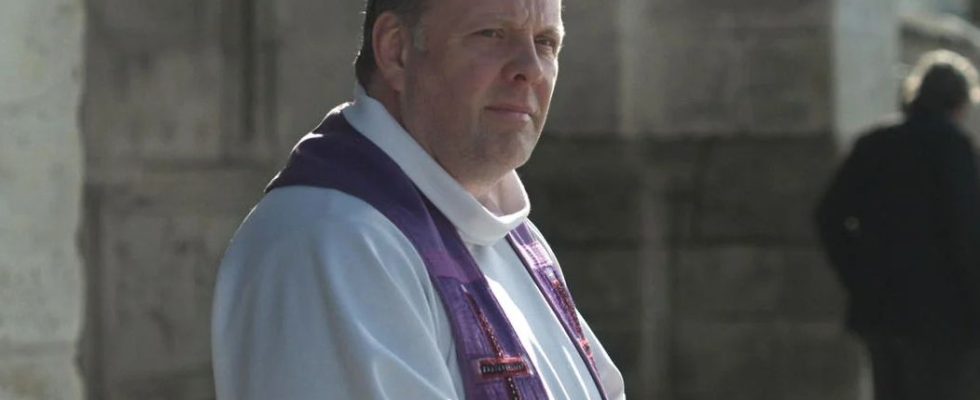“Why does everyone call you father and I can’t even call you Dad? » This question that an 11-year-old boy asks his priest father is at the center of Paternal by Ronan Tronchot. Grégory Gadedois plays this prelate who sees a young woman (Géraldine Nakache) arrive who he has not seen for years with a son who she tells him is the father.
“My co-writer, Ludovic du Clary, and I wanted to be as realistic as possible to describe the Church which is made up of different personalities,” explains the director to 20 minutes. The priest in the film must deal with the different reactions of those around him and the ecclesiastical hierarchy to this paternity that he initially tries to hide. “Our wish was to question the notion of fatherhood in every sense of the word,” insists the director.
A gray area
“Above all, we had to avoid caricatures,” explains Ronan Tronchot. This is why we carefully documented ourselves by speaking to priests of different ages and geographical situations who did not necessarily have the same relationship to vocation. » The case of the hero of the film is delicate because he falls into a gray area. He committed no fault since his child was conceived before he was a priest and he was unaware of its existence. Enough to raise a case of conscience.
“A traditionalist priest and a progressive priest have the vocation and practice of worship in common, but they do not react in the same way to what is happening around them,” declares Ronan Tronchot. We often only show the most reactionary side of the Church while there are priests who live their religion in a more open way. »
A gradual evolution
The director was able to see that various scandals have left deep marks on the faithful. “Some have distanced themselves,” he said. They felt betrayed and lost confidence after the lies that have shaken the institution for years.” However, Roman Tronchot remains optimistic. “Many think it is time for change,” he explains, “but it is happening slowly. The institution is heavy and it has an international dimension which means that modernization is progressing slowly. »
What the hero notices Paternal, faced with fear of scandal and torn between the duties of his office and his love for his child. “Can we both fulfill our role as a father and take care of our parishioners? Does personal experience help to advise others or, on the contrary, does it make one more permeable to doubt and less available? All these questions are those that we wanted to address in the film,” insists the director.
A call for reflection
Paternal lets the viewer form their own opinion on the answers to be given. This delicate film is content to give clues. “We didn’t want to attack practicing Catholics, or scare them by giving them the impression that the film is not for them,” insists Ronan Tronchot. Without aggression, with a lot of humanity, it opens a fascinating reflection on the future of a Church whose contrasts this story highlights.

